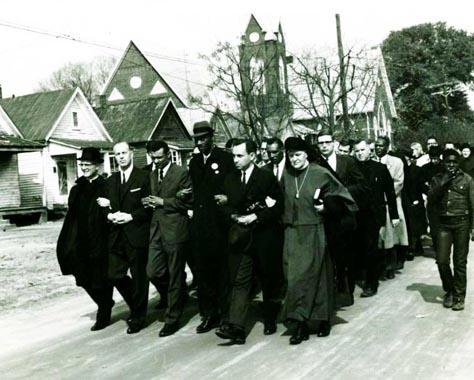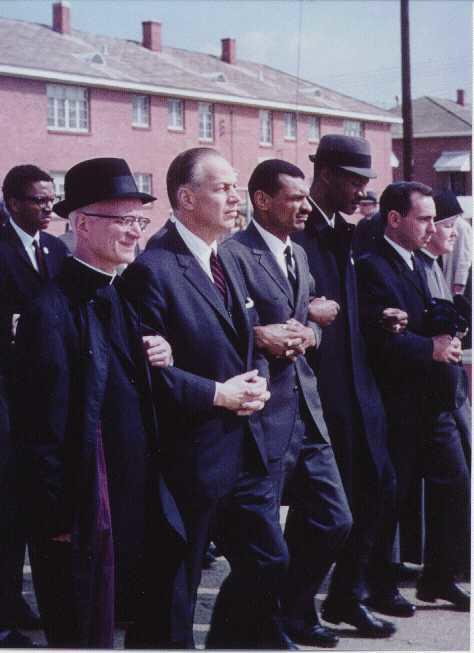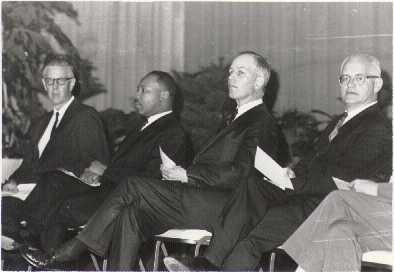Civil Rights
Selma to Montgomery, 1965

In March 1965, the Reverend Dana McLean Greeley (second from left), Unitarian Universalist Association President, joined other American religious leaders in civil rights marches in Montgomery, Birmingham, and Selma, Alabama. Reverend George McClain is in the second row, far right (with glasses). [Photo: bMS 15033/2 (2)]
The marches, prompted by Martin Luther King, Jr., protested violence against African American and other civil rights activists in Selma.
Days before this photograph was taken, an attack on three Unitarian Universalist ministers in Selma left one of them, James Reeb, dead.
The Ware Lectures, 1966
Martin Luther King, Jr., Dana McLean Greeley, and Homer Jack, director of the Unitarian Universalist Association Department of Social Concerns, at the 1966 Unitarian Universalist Association General Assembly in Hollywood, Florida. Dr. King delivered the Ware Lecture to this annual denominational assembly.
King, Greeley, and Jack had walked together in the 1965 Selma to Montgomery civil rights march. Dr. Greeley's tenure as president of the Unitarian Universalist Association included a major—and controversial—civil rights focus throughout the 1960s.
Violence in Jackson

Donald Thompson, minister of the First Unitarian Church of Jackson, Mississippi, was shot and gravely injured outside of his home on August 22nd, 1965. The attack followed telephone threats on his life, threats stemming from his efforts to integrate his congregation in Jackson.
Thompson moved to Jackson to establish a civil rights ministry. In addition to his congregational work, he also was one of the founders of Jackson's coffee fellowship, a weekly discussion group that brought together both white and black ministers and lay people.
